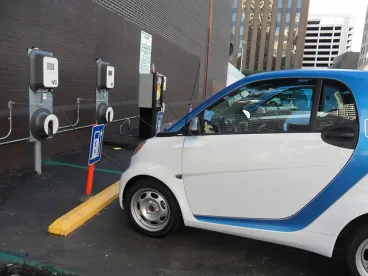On Sept. 25, Minnesota Gov. Tim Walz asked the Minnesota Pollution Control Agency (MPCA) to initiate the process to establish a Clean Cars Minnesota Rule, which would set both a low-emission vehicle (LEV) standard and a zero-emission vehicle (ZEV) standard. Next month, the MPCA will begin its rulemaking process, with a goal of adopting a final rule by December 2020. If implemented, Minnesota would join 14 states with an LEV standard, 11 of which also have a ZEV standard.
The Minnesota plan is modeled after California LEV and ZEV standards. California has a nearly 50-year-old waiver under the Clean Air Act permitting the state to set stricter emission standards. After indications that the federal government would publish a rule revoking the waiver, California, joined by 22 other states, including Minnesota, and the District of Columbia filed a lawsuit seeking to enforce states’ rights to set emission standards more stringent than those imposed by the federal government. The lawsuit presents novel questions under the Clean Air Act including whether a waiver can be revoked, and if so, under what circumstances. Any final rule in Minnesota will be contingent on states retaining the right to adopt more restrictive measures, including through the operative waiver under Sections 209(b) and 177 of the Clean Air Act.
Notwithstanding the pending lawsuit, Minnesota is proceeding with rulemaking on the Clean Cars Minnesota Rule and some additional steps that will influence the market for vehicle sales and biofuels in the state. Stakeholders will soon have an opportunity to advocate positions specific to the proposed Minnesota standards. The governor also recently established a Biofuel Council to further promulgate recommendations in 2020.
Minnesota’s move comes as the U.S. Environmental Protection Agency continues to delay action on producer registrations under the federal Renewable Fuel Standards (RFS) for renewable electricity produced from biomass. The agency first approved renewable electricity as an accepted renewable fuel pathway in 2014 under the RFS, a federal law to incentivize the use of transportation fuels produced from renewable biomass, but has yet to announce how and when valuable RFS credits, call RINs (for “renewable identification numbers”), will be awarded. Minnesota’s action, along with growing consumer interest in electric vehicles and renewable electricity, will increase pressure on the EPA to act, though final resolution on renewable electricity under the RFS seems unlikely before the 2020 elections.




 />i
/>i

